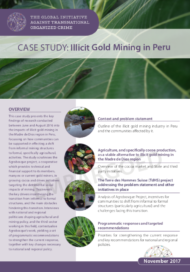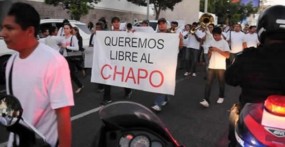Posted on 06 Mar 2014
One of the main goals of the Global Initiative is to try and catalyze new strategic responses to transnational organized crime. In doing so, we are making an effort to identify and assess existing responses, to identify the toolbox that we as policymakers and practitioners employ against organized crime and in an environment where organized crime is having an impact.
Last month in Analyzing Organized Crime we looked at some of the criminal justice responses that are applied to organized criminal behaviour, as well as examining the use of sanctions that were applied for the first time in the case of wildlife crime. This month, another first was applied to the fight against wildlife crime: the United States applied a bounty for information on a notorious environmental crime network operating in Asia. While the rewards programme approach has worked very well in the case of drug trafficking: including of note the recent capture of notorious Mexican kingpin, Joaquim ‘El Chapo’ Guzman of the Sinaloa Cartel, environmental crimes are less cut and dried. We look briefly at the implications that this new initiative will have both for international cooperative efforts to combat the wildlife trade, and for due process in this particular case.
At the same time, while the international community experiments with new approaches, the all pervasive entrepreneurship of organized crime was also highlighted this month. Events showed that the tentacles of modern organized crime reach into the quality of our food, our healthcare, even the disposal of our waste! We highlight stories on organ trafficking in Syria, in Brazil and in Kosovo; the disposal of hazardous waste in Italy and West Africa, and the growing trends in food crime in Europe and globally.
With the multitude of criminal dimensions at play, the need to become strategic, coordinated and comprehensive in our response is ever more pressing.
As always, we hope you find the briefs to be interesting and we welcome responses and feedback.



